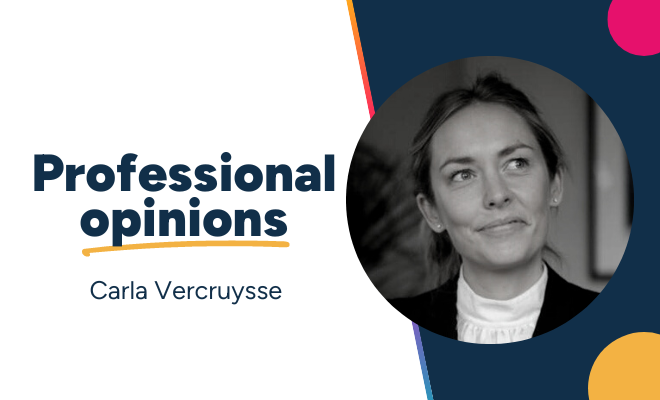Professional Opinions: Psychotherapist Carla Vercruysse
updated on Jul 20, 2023

Psychotherapist Carla Vercruysse explores the joy of listening, and why she needs to wear several different hats in her role
Welcome to Professional Opinions, the series exploring the mental health and wellbeing landscape in 2023 through a collection of interviews with professionals from the Happiful directories.
This week, we’re speaking to Counselling Directory member, Carla Vercruysse about the evolving world of psychotherapy.
A psychotherapist with an integrative approach, Carla brings together different elements of therapies in order to meet her clients needs – offering a confidential one-to-one service to individuals who need support.
So, what’s her professional opinion?
Why did you decide to join your profession?
I have always believed that talking is therapeutic. In moments of difficulty in my life, talking has been the most powerful tool and I am passionate about others having that same experience.
In my early 20s, I decided to pursue my interest in talking therapies and enrolled on an introduction course to psychotherapy at Regent’s University in London. From that day on, I had the feeling I was exactly in the right place and I have never looked back.
Since you began, what have you found to be the most surprising thing about the work you do?
No matter where you come from, or your story, everyone has the same feelings and hearing about them is a privilege.
I had the feeling I was exactly in the right place and I have never looked back
What do you like about your profession?
There are many aspects of my job that continue to keep my passion for what I do alive.
For the purpose of this piece, I will talk about two.
Firstly I adore learning about people and their experiences. I feel very fulfilled when I can offer a safe space for people to allow themselves to get in touch with their true feelings, explore their experiences and grow in their own awareness.
I have always enjoyed the thinking process that is required of a psychotherapist.
In this job, we aim to think about theory and how we can use it to guide our work. We build relationships with our clients and within those relationships we strive to remain attuned to the complexities of being in the room with another human being. Being a therapist feels like an endless quest to piece together pieces of a puzzle and this keeps it interesting.
What are some of the challenges that come with your line of work?
There are practical challenges to our line of work. For example, if you have your own private practice, you are effectively running your own business. So, you might need to think of accounts, marketing yourself, paperwork, networking, continued professional development, and so much more. You might be a very good psychotherapist but accounts might feel like a challenge, having to be many different things at once is not easy.
How do you address some of the challenges that you face?
My biggest challenge has been starting my own private practice. I have had to learn to wear many different hats and there is no manual. I have had to find the energy to keep going, keep learning and trust that one day things would come together.
Despite the challenge, I am grateful for the experience and feel that it has been important to my growth.
What do you think could be done to improve the profession for you and for others?
There is still a lot of stigma and misunderstanding around psychotherapy.
This is why I decided to start Finding Psychotherapy (Instagram and podcast). The aim is to support people in understanding what therapy is. What is its purpose? When to access it? How to find a therapist that is right for you? What are the various approaches and why is that important?
My sense is that therapy is a valuable tool that we can all benefit from during difficult times in our lives, so we need to work on removing the mystery around it and on making it feel accessible to everyone.
What do you see being some of the major challenges your profession will face in the next 10 years? How do you think the way you will operate may change?
Psychotherapy is not regulated and this is something that has to change in order for people to begin to trust talking therapies and for stigma to be reduced.
The world is changing at a fast pace and therapy needs to keep up. There are obvious challenges with this. How do we maintain the connection, relationship and space required for therapy to be helpful in a virtual world?
What advice would you give to others in the profession?
Psychotherapy is a continually evolving, complex and very rewarding job. It can feel difficult and there are challenges, but I would suggest you stick with it. It's worth it!
Carla Vercruysse
UKCP Member
Find out more about Carla, and connect with her, on the Counselling Directory.
The Happiful directories are
Counselling Directory, Life Coach Directory, Hypnotherapy Directory, Therapy Directory, and Nutritionist Resource. Find out more, and start your journey with us.

